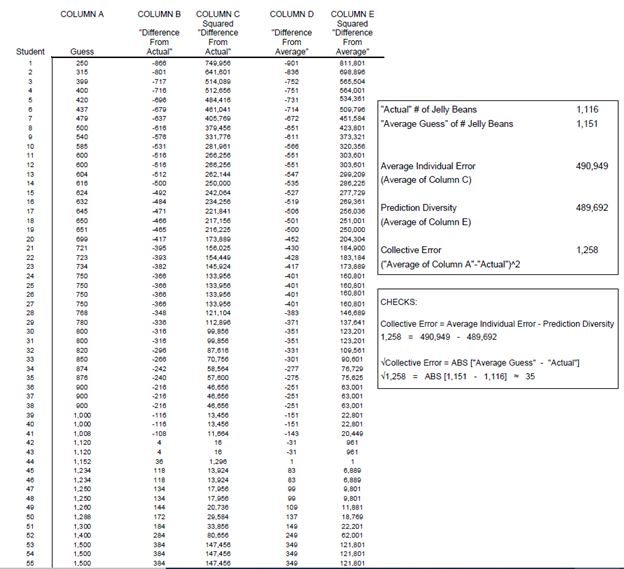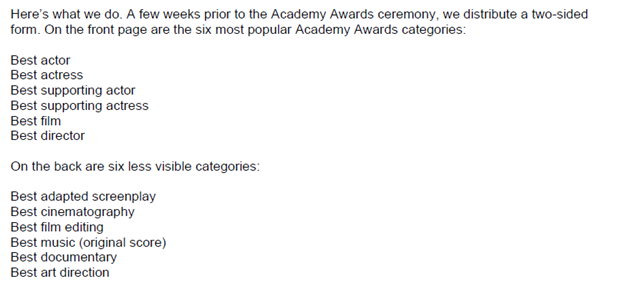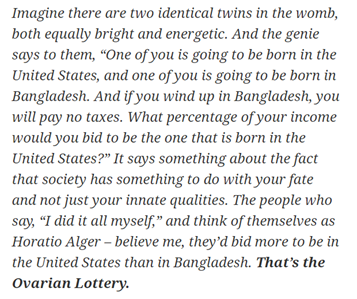In 2007, @mjmauboussin wrote a paper on the wisdom of crowd, and showed with simple maths and experiments why the crowd can trump individuals.
Some of the takeaways were VERY counterintuitive and it materially influenced my thinking.
Audience was right 90% of the time.
The expert?~67%.
Why?
Scott Page in his book “The Difference” explains the rationale with a very simple example.
Which person from the following list was not a member of the Monkees (a 1960s pop band)?
(A) Peter Tork
(B) Davy Jones
(C) Roger Noll
(D) Michael Nesmith
The answer is Roger Noll.
7 know all 3 of the Monkees
10 know 2 of the Monkees
15 know 1 of the Monkees
68 have no clue
So <10% knows the answer, and over 2/3rd have no idea on the topic. Assume those who have no clue pick randomly.
7 who know all the Monkees vote Noll
5/10 who know 2 of the Monkees will vote Noll
5/15 who know 1 of the Monkees will vote Noll
17/68 clueless will vote Noll
The correct answer will get 34 votes whereas the other choices will get 22 each.
I. Some people in the crowd know the answer while many, if not most, don’t.
II. The second is a state estimation problem, where one person knows the answer but the group does not...
The first example addresses the first type of problem just discussed. Let’s discuss the other two now.
Mauboussin did this experiment a number of times at Columbia. He shared the 2007 results and mentioned the result is remarkably consistent every year.
The actual number was 1,116, so avg guess was ~3% shy of the actual.
Here’s what truly shocked me: Only 2 out of 73 people guessed better than average.
I. Diverse crowd will always predict more accurately than the average individual. So the crowd predicts better than the people in it.
Not sometimes. ALWAYS.
If it’s still counterintuitive, spend another minute on that table.
This was sort of a combination of experiment 1+2.
Some people have better knowledge on pop-culture, and greater diversity of the crowd led to the correct prediction at a higher rate than anyone else.
While we mostly focus on social diversity (race, gender etc.) and there is indeed high correlation between social identity diversity and cognitive diversity, the actual benefit of diversity stems from cognitive diversity.
It is a fascinating read nonetheless. Happy weekend!
Link: operators.macro-ops.com/wp-content/upl…





